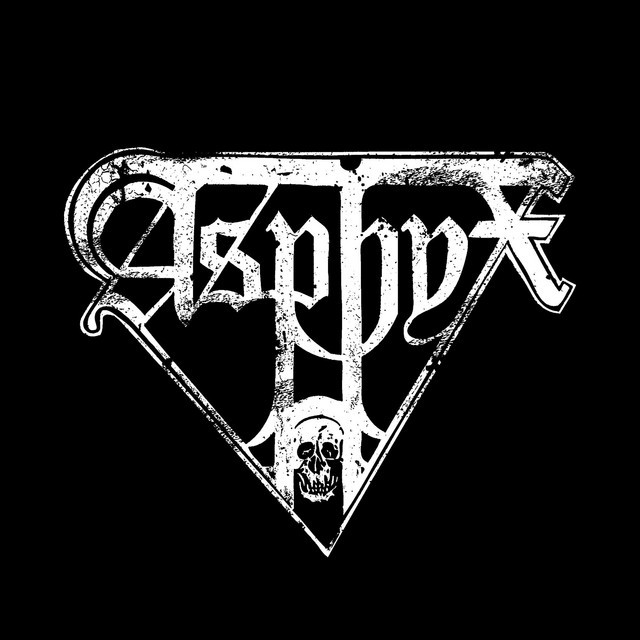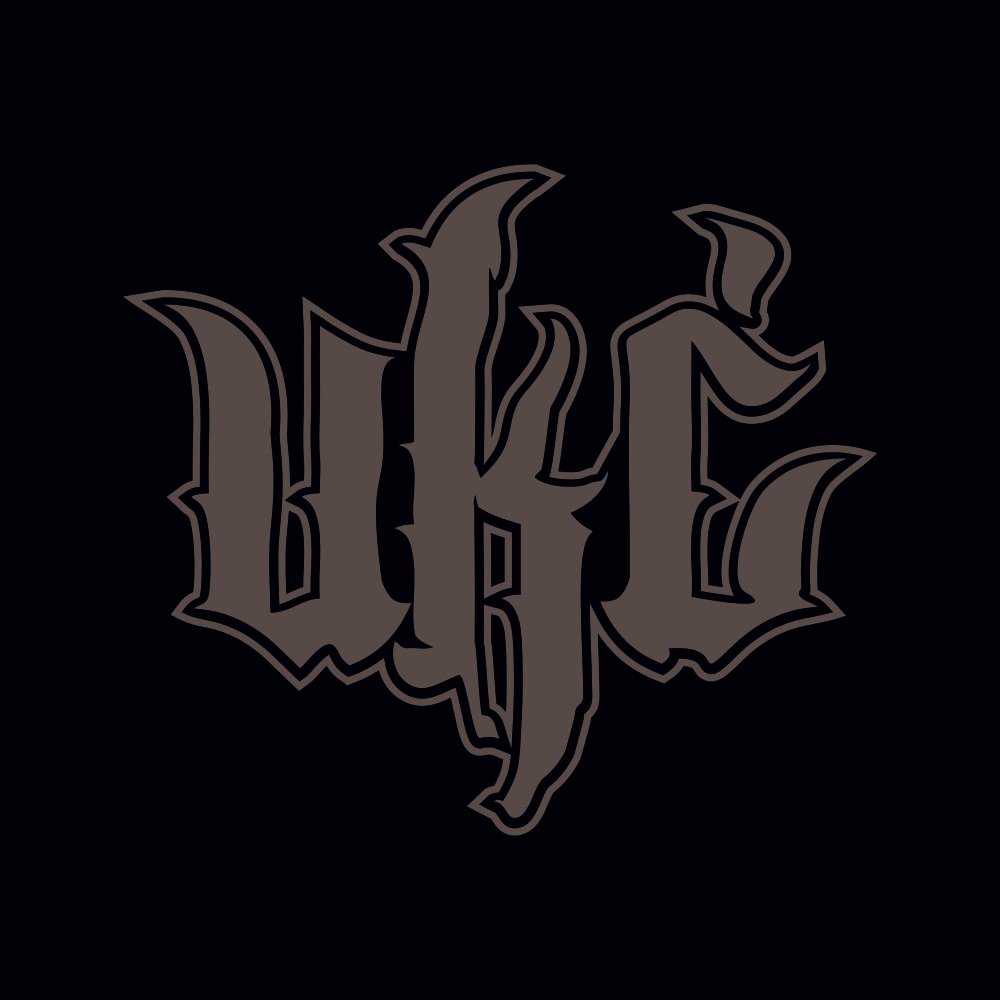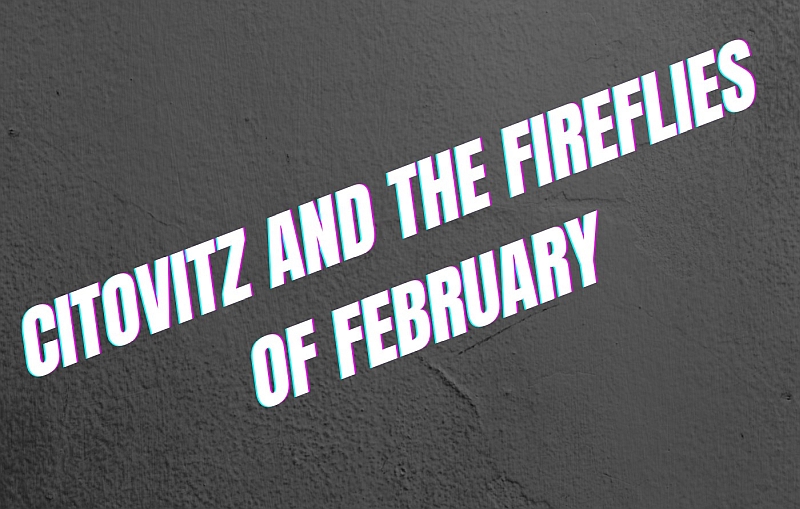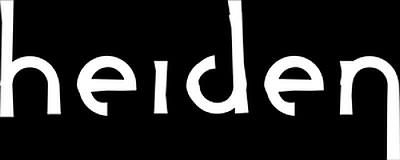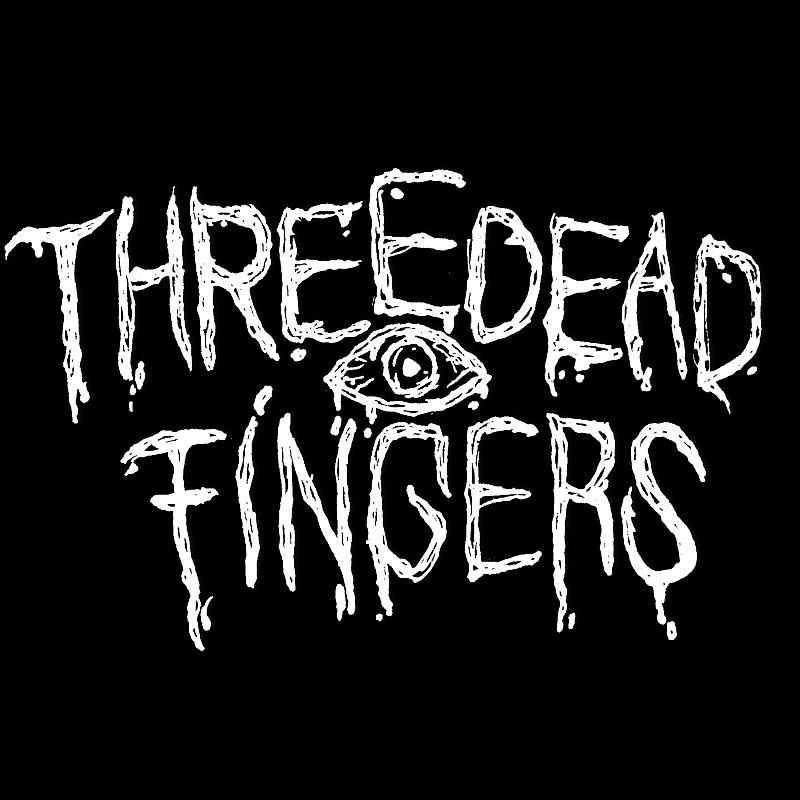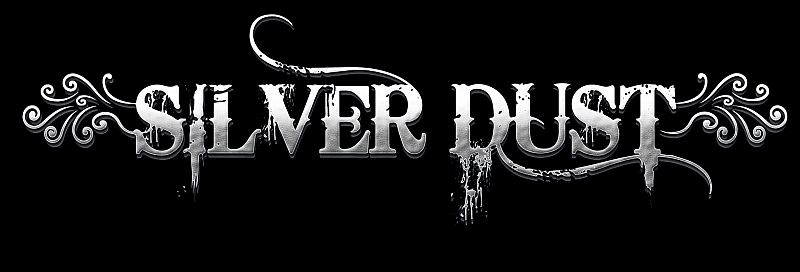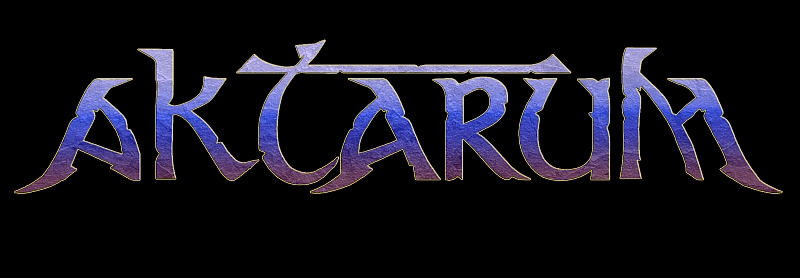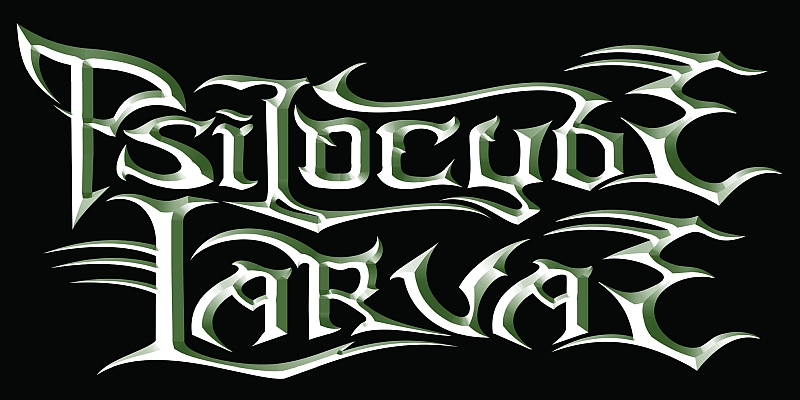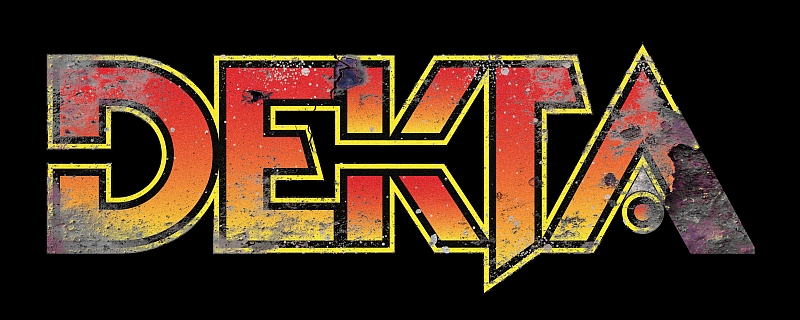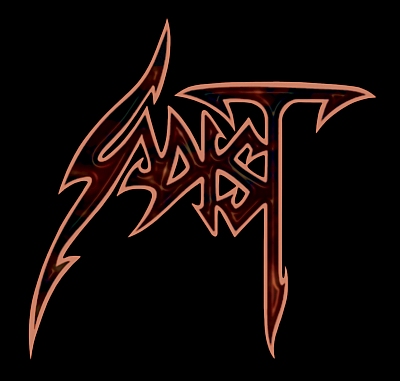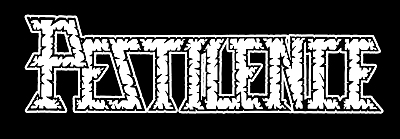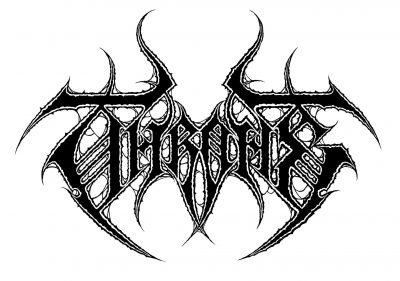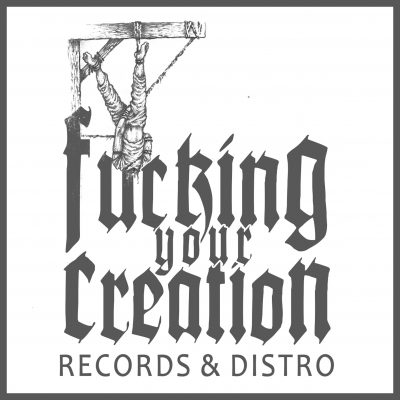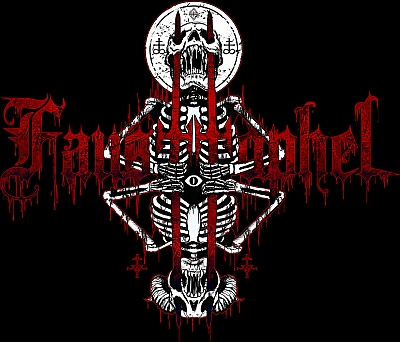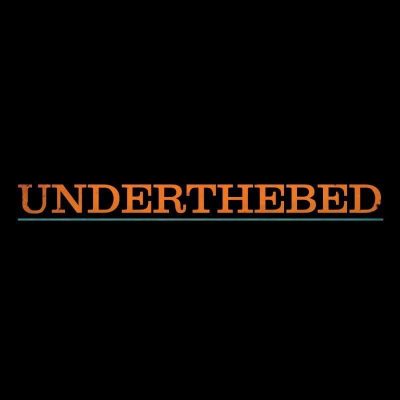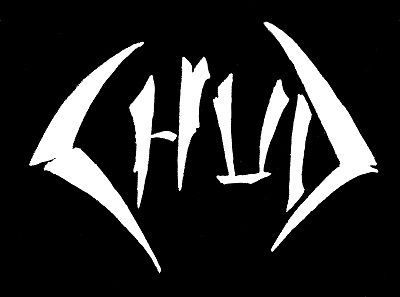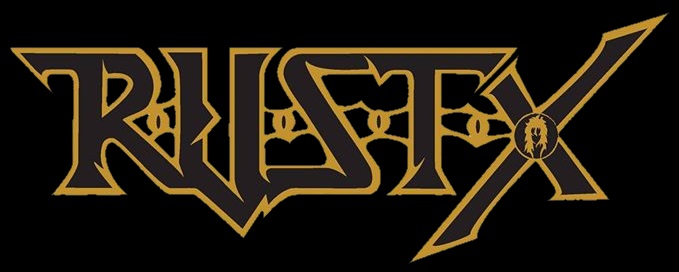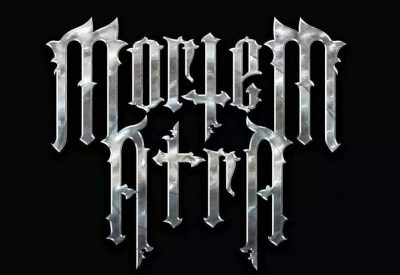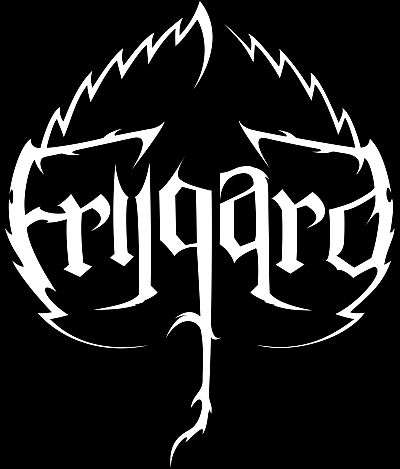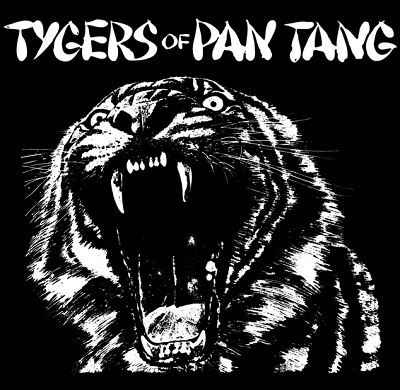SAKREFIXs dark, esoteric brand of extreme metal seems fitting for the location they call home. Austin, Texas boasts one of the largest live music scenes in the world. Because it is such a Mecca for musicians, one could find just about any given genre or sub-genre of music on any given night. Many of these bands have an eclectic, artistic vision. SAKREFIXs approach is quite diverse and profound. Whether it is their stage show, lyrical themes or the music they create; there is something that separates this band from the hordes of death and black metal imitators.
First of all, SAKREFIX plays a brand of extreme metal that garners many descriptions yet defies any one category. One could describe their music as melodic death metal, melodic black metal, black metal and thrash. In the tradition of black metals affinity for the grotesque and macabre, SAKREFIX storms the stage drenched in blood. This blood has a symbolic significance (which the group explains later on in the interview). SAKREFIXs performances are always professional; the group works well as a unit, each musician tightly following his band mates through each sharp twist and turn. All of these aspects of the band have not been lost on the huge, central Texas metal populace. They have become one of the leaders of this scene.
On August 29th, SAKREFIX played a CD release show at one of Austins premier metal clubs, Red 7. This concert celebrated the release of their latest opus In Shadows Embrace. Before taking the stage for this momentous occasion, guitarist and band founder Hadrian and vocalist Mortryne spoke to Metal Centre about this release and the ideals that comprise SAKREFIX.

You started SAKREFIX started as a one-member, strictly studio project in 2005. Three years later, you have a full lineup and your first proper recording In Shadows Embrace. Why did it take so long to release this album?
Hadrian: There are a couple of reasons. There was the time we were trying to find all the members to complete the band. That took a little over a year. We recorded it last summer, and have been sitting on it for a year. Im not really sure why; we just didnt really get on the ball, although we lit a fire under our ass and got it out now.
Mortryne: In the meantime, we have written almost an entire other album that is almost ready to be recorded.
Hadrian: Yeah, we have another album almost ready. We have about three more songs and then we are done.
 During the studio-only days you released Dark Spells Cast Under the Eclipsing Moon. Do any of these tracks appear on your newest release?
During the studio-only days you released Dark Spells Cast Under the Eclipsing Moon. Do any of these tracks appear on your newest release?
Hadrian: Actually, they dont but we have plans to rerecord the Dark Spells demo. We are going to rerecord it, and throw a couple of new songs on it as well. Its going to be after Evolve, which is the next album we are working on right now. Probably by 2010, we will be reworking those songs.
Mortryne: That album will probably be released as an EP. It is probably going to have a different title. The music will be completely reworked and the lyrics completely rewritten, so it will be like a new thing. It is kind of a novelty in that it will have two or three bonus tracks thrown in, possibly a cover song just for fun. Probably no GOROGORTH (the group incorporates A World to Win as part of their live set).
Hadrian wrote the majority of the lyrics, but Mortryne wrote Unearthly Passage and collaborated with Hadrian on When Twilight Dies. Is there a noticeable different both of your writing styles?
Mortryne: Lyrically, there is a vast different between our writing styles. Hadrian is mostly about writing the music. I have developed or evolved a bit of a vision as far as the lyrics are concerned. All the lyrics that I write are aiming towards that vision. I think these lyrics are rather unique. That is the direction we are headed in with our music, lyrics and all the imagery associated with the band.
Hadrian: The lyrics that I write are fairly mediocre. I write using basic, AA BB rhyme-patterned structures. As far as Patrick [Mortryne] goes, he doesnt hold any pattern. He says what is on his mind without having to confirm to any type of rhyme. Thats the main difference that I notice. He says what he wants to say, while Im poetic and trying to be cool about it.
Mortryne: I focused a lot on using certain philosophical or scientific terminology. I would say that lyrically I use a combination of Existentialism, Deconstructionism, Nihilism, a little bit of Taoism is thrown in there, some Transcendentalism and even a bit of Marxism. I use lots of isms for a message that is very anti-ism. The whole point is about casting aside ideologies. Whether those ideologies are religious, political, economic or scientific; in our minds those are all equally destructive and hold us back relatively the same and enslave us as a species. Unfortunately, within the confines of the English language and other languages you have to use words that represent ideologies in order to cast aside those very same ideologies.
 Besides the obvious (more members, live performances), how has SAKREFIX evolved since your early days?
Besides the obvious (more members, live performances), how has SAKREFIX evolved since your early days?
Hadrian: In tons of ways. First of all, the musicianship musicians are going to get better over time, but oh my gosh! We all have gotten better since the Dark Spells days. The song writing, structures and stuff like that have changed a lot. We have a more serious effort going, rather than trying to just write songs to put on the internet. That was kind of what I started doing with SAKREFIX back in the day. Now, it has turned into more of a fully functional band versus some kid sitting in the basement of his moms house recording crap.
Mortryne: The evolution is evident to anyone who listens to our sound now.
Tell me about the recording process for In Shadows Embrace.
Mortryne: I would say it took about six to eight weeks to record it, from beginning to end. However, we werent working on it all the time. It took longer than we wanted it to, but in all honesty, it was a relatively painless experience. We recorded it with the help of the engineering and producing skills of Kristoph of Amplitude Media and Vesperian Sorrow, who completely lived up to his professional reputation.
 Ivar Bjřrnson of ENSLAVED handled mastering duties for the album. Tell me about working with him.
Ivar Bjřrnson of ENSLAVED handled mastering duties for the album. Tell me about working with him.
Well, we've become friends with Ivar through our bassist, VicThor, and have been fans of Enslaved since we were kids. Asking him to master our album made perfect sense, and was an obvious decision for our debut, given the sound we were going for and our own personal tastes. Basically, he just asked us to send him a list of albums that we personally like and that go in the direction of the sound we were looking for. We complied, he gave it a try, and it sounded amazing! He is quite talented.
Metalhits.com is releasing this album, which represents a non-traditional approach to releasing an album. Please tell our readers about working with this site.
 Mortryne: At least for non-major label artists, which essentially consists of any extreme metal band, I would say that digital releases are probably the future. People arent buying a lot of CDs anymore. It is perfect because it has a minimal cost to the band and the label. I cant really think of a better way to release our music. As far as the metal scene is concerned, a physical CD is more of a novelty than anything else. If you have a CD, it is kind of a cool collectors item. Youre still going to listen to music on your computer and on your MP3 player far more than you are going to pop a CD into your CD player. Furthermore, if you pop a CD into your computer, you are probably going to burn if off of your MP3 collection. Its just a more practical way of doing it. It is less waste, and its just easier for us to do it that way. Metal Hit has been very cool to work with so far. You can go to www.metalhit.com, preview every single song, you can download it. It can also download it from Rapsody, Itunes, Emu Music, Napster, AOL, Amazon, Yahooessentially any major digital music outlet will carry In Shadows Embrace, as far as I know.
Mortryne: At least for non-major label artists, which essentially consists of any extreme metal band, I would say that digital releases are probably the future. People arent buying a lot of CDs anymore. It is perfect because it has a minimal cost to the band and the label. I cant really think of a better way to release our music. As far as the metal scene is concerned, a physical CD is more of a novelty than anything else. If you have a CD, it is kind of a cool collectors item. Youre still going to listen to music on your computer and on your MP3 player far more than you are going to pop a CD into your CD player. Furthermore, if you pop a CD into your computer, you are probably going to burn if off of your MP3 collection. Its just a more practical way of doing it. It is less waste, and its just easier for us to do it that way. Metal Hit has been very cool to work with so far. You can go to www.metalhit.com, preview every single song, you can download it. It can also download it from Rapsody, Itunes, Emu Music, Napster, AOL, Amazon, Yahooessentially any major digital music outlet will carry In Shadows Embrace, as far as I know.
SAKREFIX plays a brand of extreme metal that nods to many modern styles such as melodic death, black metal and thrash. Who are some of the groups that influence SAKREFIX?
Hadrian: Some influences are apparent: DISSECTION, NAGLFAR, DARK FUNERALbands such as those, but not necessarily limited to those three. Those bands have been a huge influence on me and Vlad (guitars).
Mortryne: Lyrically, my influences are not any metal bands at all. Im influenced by different writers, philosophers and literature. Our music has been going more of the direction of ENSLAVED meets WATAIN meets DEATHSPELL OMEGA with a little of the melodic death from In Shadows Embrace remaining. But when you hear our new album, you are going to be surprised at how different it sounds from In Shadows Embrace.
One thing I hearin the vocals (strongly), melodies and riffs is a GOD DETHRONED influence. Is that unintentional?
Mortryne: It is completely unintentional. In fact, Im not sure if Hadrian was ever into GOD DETHRONED before that album was written. Im sure he has heard them off hand, but not an avid listener or fan. Im not a fan much, maybe their really early stuff, but not anything they have done since Bloody Blasphemies. That was probably their last good album in my opinion.
Yeah, those first couple of records were great.
Hadrian: I havent heard them. I hadnt even heard DISSECTION before I wrote In Shadows Embrace. I hadnt heard DISSECTION or any band like that, but due to the comparisons of bands like them and OPETH; I thought I should check out those bands. I noticed a huge similarity as far as following the melody and the style of writing. It is just weird how I was able to write that without hearing those bands. I wanted people to have these common similarities that people notice with SAKREFIX and other bands that really were unintentional. It is just weird how that works.
 Your live performances have made SAKREFIX a stand out group in the Austin, Texas area, which is one of the largest music scenes in the country, if not in the world. Please tell our readers what they would experience at a SAKREFIX show.
Your live performances have made SAKREFIX a stand out group in the Austin, Texas area, which is one of the largest music scenes in the country, if not in the world. Please tell our readers what they would experience at a SAKREFIX show.
Mortryne: Energy, hostility and hate are the main things. We are conscious of what it is that we are doing. We understand that it is easy to not take it completely serious, and we keep that in mind. We cover ourselves in blood while on stage, not all the time but a lot of the time. To us, that represents us being sacrificed on the altar, which is the stage. Everything about our music is a sacrificea sacrifice of our current values, institutions, belief systems and ideology of our current world.
Give me some more details about this next album.
Mortryne: Pre-production will begin for it in the next six weeks. We probably wont begin tracking it until at least the spring, so I wouldnt expect it to be out before the end of 09. I'm not going to give away any more details about it just yet, but I can personally guarantee that it will completely eclipse our current album.
www.myspace.com/sakrefix


